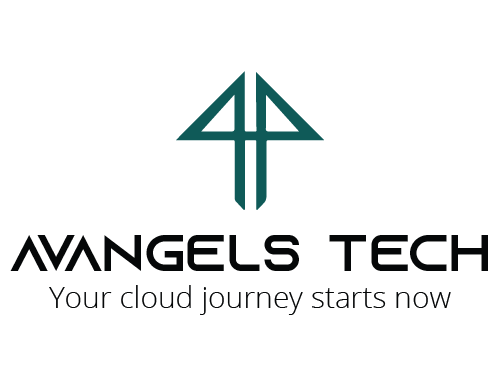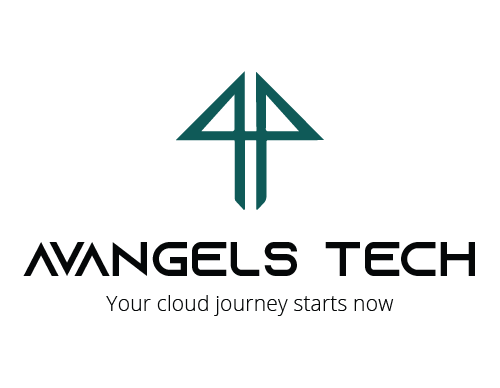Google Cloud Dataproc
Unlocking the Power of Big Data
This series of blogs looks at some of the most popular and commonly used services on the Google Cloud Platform. In this blog, we discuss Google Cloud Dataproc.
Additional Reading
For more detailed documentation on “Google Cloud Load Dataproc”, please visit the official Google Cloud website.
For official documentation on “What is Dataproc?”, please visit the official Google Cloud website.
To get a deeper understanding of “Google Cloud Firebase”, please refer to the attached link.
To get more information on “Google Cloud Endpoints”, please refer to the attached link.
To get more information on “Google Cloud Dialogflow”, please refer to the below blog.
For more blogs on “Google Cloud Services”, please refer to the attached link.
Introduction
In today’s data-driven world, organizations across industries are constantly seeking efficient and scalable solutions to process and analyze large volumes of data. Google Cloud Dataproc is one such powerful tool that offers managed Apache Hadoop and Apache Spark services, making it easier than ever to process big data.
Google Cloud Dataproc is one of the many solutions offered by Google Cloud Platform (GCP) that helps organizations leverage the power of big data processing and analytics. Google Cloud Dataproc is a powerful managed Apache Hadoop and Apache Spark service that enables businesses to process large-scale data quickly and efficiently. Google Cloud Dataproc is a powerful tool that offers a streamlined, cost-effective solution for processing big data workloads in the cloud.
In this blog post, we’ll dive into Google Cloud Dataproc, exploring its features, benefits, and use cases to help you understand how it can revolutionize your data processing workflows.
What is Google Cloud Dataproc?
Google Cloud Dataproc is a fully managed cloud service that simplifies the deployment and management of Apache Hadoop and Apache Spark clusters. It is a part of the Google Cloud Platform (GCP) and is designed to make big data processing easy, fast, and cost-effective. Dataproc leverages Google’s infrastructure and autoscaling capabilities to ensure that you can process large volumes of data efficiently without the need to provision and manage your own hardware, allowing organizations to focus on deriving insights from their data rather than managing infrastructure.
Google Cloud Dataproc simplifies the deployment and management of Apache Hadoop, Apache Spark, Apache Hive, Apache Pig, and Apache Flink clusters. Dataproc is designed to handle a wide range of data processing tasks, including batch processing, interactive querying, machine learning, and more. It allows users to process vast amounts of data quickly and cost-effectively, making it a popular choice among data engineers, data scientists, and analysts.
Key Features and Benefits of Google Cloud Dataproc
1. Managed Clusters: Dataproc provides fully managed clusters, allowing users to create, scale, and manage clusters with ease. You can define cluster properties, and specify the number and types of virtual machines (VMs) needed, and Dataproc will automatically provision and configure the cluster. With just a few clicks or a simple command, you can create, resize, or delete clusters as needed. Dataproc manages the installation and configuration of the entire Spark and Hadoop ecosystem, making it easy to use popular big data processing tools. This means you can focus on your data and applications rather than the underlying infrastructure.
2. Integration with GCP Services: Dataproc seamlessly integrates with other Google Cloud Platform (GCP) services, such as BigQuery, Google Cloud Storage, Google Data Studio, Google Cloud Machine Learning, and Pub/Sub. This integration makes it easy to ingest, store, and visualize data, creating a comprehensive data processing ecosystem, and enabling you to leverage the full power of GCP’s ecosystem for your big data projects.
3. Autoscaling: One of the standout features of Dataproc is its autoscaling capabilities. It can automatically add or remove cluster nodes based on the workload, ensuring you have the right amount of resources at all times. This dynamic scaling ensures that you are not over-provisioning resources, and can lead to significant cost savings by only paying for the resources you actually use.
4. Customization: Dataproc allows users to customize cluster configurations, including choosing specific versions of Hadoop and Spark, installing libraries, and specifying initialization actions. Users can customize Dataproc clusters to meet their specific requirements, choosing the number and types of virtual machines, as well as pre-installing custom libraries and applications. Additionally, users can customize cluster configurations, including the choice of machine types, initialization actions, and optional components like Anaconda and Jupyter notebooks.
5. Pay-Per-Use Pricing: Dataproc follows a pay-as-you-go pricing model, allowing users to pay only for the resources they consume, reducing the overall cost of big data processing. With pay-per-use pricing and autoscaling, you can optimize your infrastructure costs. You don’t need to maintain a large cluster at all times, only paying for the resources when you use them.
6. Security and Encryption: Google Cloud takes security seriously, and Dataproc is no exception. It provides robust security features, including encryption, Identity and Access Management (IAM) controls, integration with Google’s security services, and compliance certifications, making it suitable for handling sensitive data. This ensures that your data remains protected throughout the data processing pipeline.
7. Pre-Installed Libraries and Tools: Dataproc comes with pre-installed libraries and tools like Apache Hadoop, Apache Spark, Presto, Pig, and Hive This means you can start processing your data immediately without the hassle of manual setup and configuration. You can also install custom libraries and applications to tailor your clusters to your specific needs.
8. Flexible Pricing: Google Cloud Dataproc offers flexible pricing options, allowing you to choose between standard and preemptible VMs. Preemptible VMs are significantly cheaper but come with the trade-off of potential termination if Google needs the resources. This flexibility allows you to balance cost and reliability based on your workload. Preemptible VMs are ideal for fault-tolerant and batch-processing workloads. Additionally, Dataproc offers automatic scaling, which allows clusters to resize based on workload requirements, helping organizations optimize costs by paying only for the resources they use.
9. Monitoring and Diagnostics: Dataproc includes built-in monitoring and diagnostics tools that help you track cluster performance and troubleshoot issues quickly. You can also integrate Dataproc with other monitoring solutions, such as Google Cloud Monitoring and Logging, for a comprehensive view of your cluster’s health.
10. Initialization Actions: You can customize your Dataproc clusters using initialization actions, which are scripts that run on cluster nodes during startup. This flexibility allows you to install additional software or configure the environment to suit your specific needs.
11. High Availability: Dataproc provides high availability options, ensuring that your clusters remain operational even in the face of node failures.
12. Ease of Use: Google Cloud Dataproc abstracts the complexities of cluster management, making it accessible to data scientists and analysts without deep expertise in infrastructure management. With Dataproc’s managed service, you can focus on your data and analysis tasks rather than the complexities of cluster management, maintenance, and monitoring.
13. High Performance: Leveraging Google’s infrastructure and optimization, Dataproc can process data at high speeds, making it suitable for real-time analytics and large-scale batch processing. Additionally, leveraging the power of Apache Hadoop and Apache Spark, Dataproc delivers high-performance data processing capabilities, enabling faster analytics and insights.
Use Cases for Google Cloud Dataproc
1. Log Analysis: Organizations can use Dataproc to process and analyze large volumes of log data generated by web servers, applications, or IoT devices. For organizations dealing with large volumes of logs and events, Dataproc can help extract valuable insights from these data sources. This can help in identifying trends, and anomalies, improve operational efficiency, and identify security threats in real time.
2. Machine Learning and AI: Dataproc can be integrated with Google’s AI and machine learning services to build and train machine learning models on large datasets. It serves as a platform for training machine learning models at scale, leveraging Apache Spark and other ML frameworks. Dataproc provides the computational power needed for training complex models. By combining Dataproc with other GCP services like TensorFlow and BigQuery, you can build and train machine learning models on massive datasets. This is especially useful for tasks like image recognition, natural language processing, and recommendation systems.
3. Genomic Data Analysis: In the field of genomics, Dataproc is used for processing and analyzing vast amounts of genetic data, helping researchers gain insights into diseases, drug discovery, and personalized medicine. In the healthcare and genomics industries, Dataproc can handle large-scale genomic data analysis tasks, accelerating research, and diagnosis, helping researchers make medical breakthroughs
4. Retail Analytics: Retailers can use Dataproc to process and analyze sales data, customer behaviour, and inventory levels to optimize pricing, inventory management, and customer experiences.
5. Financial Services: In the financial sector, Dataproc can be used for fraud detection, risk analysis, and portfolio optimization by processing and analyzing vast amounts of financial data.
6. Data Processing and ETL Pipelines: Dataproc is ideal for processing and transforming large datasets as part of Extract, Transform, Load (ETL) pipelines. It can handle tasks like data cleansing, aggregation, and enrichment efficiently. Organizations can use Dataproc to build and automate ETL pipelines, allowing them to ingest, clean, and transform data from various sources before loading it into their data warehouse or analytics platform.
7. Real-time Data Analysis: Dataproc makes it easy to perform ad-hoc data analysis and exploration. You can quickly spin up clusters, run SQL queries, and visualize the results using tools like Jupyter Notebooks or Data Studio. Dataproc can be used for real-time data processing using Apache Flink, allowing businesses to make quick decisions based on streaming data.
8. Recommendation Engines: E-commerce companies can build recommendation engines using Dataproc to analyze user behaviour and suggest personalized products to customers. Dataproc powers recommendation systems that provide personalized content and product recommendations based on user behaviour and preferences.
Getting Started with Google Cloud Dataproc
1. Create a GCP Account: If you don’t have one already, sign up for a Google Cloud Platform account.
2. Enable the Dataproc API: In the Google Cloud Console, navigate to the Dataproc section, and enable the Dataproc API for your project.
3. Create a Dataproc Cluster: Use the GCP Console, CLI, or Terraform to create a Dataproc cluster. Specify the cluster configuration, including the number and type of VMs and the software packages to install.
4. Submit Jobs: Submit your Spark or Hadoop jobs to the Dataproc cluster. You can do this through the GCP Console, the Dataproc API, or by using tools like Apache Airflow.
5. Monitor and Optimize: Monitor the performance of your cluster and adjust the number of nodes as needed to optimize costs and performance. Keep an eye on the cluster’s performance and usage through the Dataproc Console, and make adjustments as needed.
Conclusion
Google Cloud Dataproc is a powerful tool for organizations seeking to unlock the full potential of their big data. Its managed clusters, integration with other Google Cloud services, customization options, and cost-effective features make it a compelling choice for businesses of all sizes. Whether you need to process, analyze, or transform large datasets, Dataproc provides the scalability, flexibility, and reliability required to meet your data processing needs. By harnessing the power of Google Cloud Dataproc, businesses can gain valuable insights, make data-driven decisions, and stay competitive in today’s data-centric world.
Google Cloud Dataproc is a game-changer for organizations seeking to harness the power of big data without the complexity and cost associated with managing on-premises infrastructure. With its ease of use, scalability, and integration with other GCP services, Dataproc empowers businesses to unlock insights, drive innovation, and stay competitive in today’s data-driven world. Whether you’re processing terabytes of data or training machine learning models, Dataproc can help you do it faster, more efficiently, and at a lower cost.
In conclusion, Google Cloud Dataproc is a powerful tool that empowers organizations to tackle big data challenges efficiently. Its managed cluster provisioning, integration with GCP services, autoscaling, and extensive customization options make it an attractive choice for businesses of all sizes. Whether you’re looking to gain insights from your data, perform complex data transformations, or run machine learning models, Dataproc can help you unlock the potential of your data while keeping costs under control. So, don’t miss out on the opportunity to leverage the potential of Dataproc and take your data processing capabilities to the next level in the cloud.


